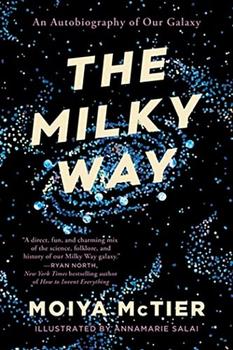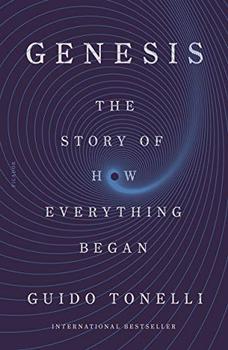Summary | Excerpt | Reviews | Beyond the book | Read-Alikes | Genres & Themes | Author Bio

Ten Keys to Reality
by Frank WilczekOne of our great contemporary scientists reveals the ten profound insights that illuminate what everyone should know about the physical world.
In Fundamentals, Nobel laureate Frank Wilczek offers the reader a simple yet profound exploration of reality based on the deep revelations of modern science. With clarity and an infectious sense of joy, he guides us through the essential concepts that form our understanding of what the world is and how it works. Through these pages, we come to see our reality in a new way--bigger, fuller, and stranger than it looked before.
Synthesizing basic questions, facts, and dazzling speculations, Wilczek investigates the ideas that form our understanding of the universe: time, space, matter, energy, complexity, and complementarity. He excavates the history of fundamental science, exploring what we know and how we know it, while journeying to the horizons of the scientific world to give us a glimpse of what we may soon discover. Brilliant, lucid, and accessible, this celebration of human ingenuity and imagination will expand your world and your mind.
Wilczek adroitly intersperses the technicalities of subatomic particles with slice-of-life vignettes from his own experiences and uses metaphors that are memorable and convincing. His narrative voice is neither too smart nor too cute. Fundamentals informs while never feeling condescending, and it goes into great detail without losing clarity. It may be the most hopeful, humanitarian book on physics you'll ever read...continued
Full Review
 (801 words)
(801 words)
(Reviewed by Ian Muehlenhaus).
Humans are incapable of knowing for certain what is real. We use our five senses to collect data about the environment around us. Data is the key word here; we don't see, hear, touch, taste or smell reality. We use our senses to sample data about the environment.
This data is processed by our brains, which then interpret and give form to what we perceive as reality. Our reality is nothing more than our perception based on limited, sampling-error prone data.
The brain itself is comprised of around 100 billion individual cells, which in turn are built upon a handful of subatomic particles. These particles are reconfigured to create different types of atoms. Science has demonstrated that these atoms and subatomic particles don't ...

If you liked Fundamentals, try these:

by Moiya McTier
Published 2023
Astrophysicist and folklorist Dr. Moiya McTier channels the Milky Way in this approachable and utterly fascinating autobiography of the titular galaxy, detailing what humans have discovered about everything from its formation to its eventual death, and what more there is to learn about this galaxy we call home.

by Guido Tonelli
Published 2022
A breakout bestseller in Italy, now available for American readers for the first time, Genesis: The Story of How Everything Began is a short, humanistic tour of the origins of the universe, earth, and life - drawing on the latest discoveries in physics to explain the seven most significant moments in the creation of the cosmos.
Show me the books he loves and I shall know the man...
Click Here to find out who said this, as well as discovering other famous literary quotes!